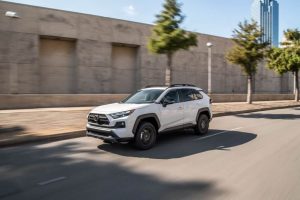
NTSB Pushing for Anti-Speeding Technology in New Cars
The National Transportation Safety Board (NTSB) is advocating for the incorporation of intelligent speed-assistance technology in all new vehicles produced by 17 major automakers. This recommendation comes in the wake of a fatal accident on January 29, 2022, involving a 2018 Dodge Challenger that ran a red light at a staggering speed of 103 mph, resulting in a collision with five other vehicles, claiming the lives of all occupants in both the Challenger and a Toyota Sienna minivan.
The NTSB’s investigation revealed that the Dodge driver’s impaired decision-making, influenced by the use of cocaine and the drug phencyclidine (PCP), contributed to the tragic event. Furthermore, the driver had a history of speeding offenses. In response to such incidents, the NTSB is emphasizing the need for proactive safety measures.
NTSB Chair Jennifer Homendy stated that the key to saving lives lies in redundancy to protect against human errors on the roads. The NTSB urged 17 automakers, including prominent names like BMW Group, Ford, General Motors, Honda, Toyota, and Volkswagen, to install intelligent speed-assistance technology in all new vehicles. This technology utilizes a car’s GPS location, a database of posted speed limits, and onboard cameras to ensure compliance with legal speed limits.
Two types of systems were highlighted: passive systems that warn drivers through visual, audible, or haptic alerts, relying on the driver to reduce speed, and active systems that incorporate mechanisms making it difficult to exceed speed limits or electronically limit a vehicle’s speed. While these technologies are mandatory in vehicles sold in the European Union, they have not yet been mandated in the United States.
The Alliance for Automotive Innovation, representing major U.S. automakers, expressed support for a safe system approach but emphasized a comprehensive strategy, including driver education, strong laws and law enforcement, and infrastructure investment.
The NTSB not only recommends automakers implement this technology but also urges the National Highway Traffic Safety Administration (NHTSA) to require speed-limiting technology in all new vehicles. Additionally, the NTSB advocates for public education on the benefits of this technology and suggests incentivizing its adoption through the New Car Assessment Program.
NHTSA, in response to the NTSB’s recommendations, stated that it carefully reviews such input, especially when considering potential regulatory actions. The agency had previously proposed updates to its vehicle evaluation program and sought public opinions on the inclusion of anti-speeding technology.
In a broader context, the NTSB is calling for the Insurance Institute for Highway Safety to conduct a study on the safety outcomes of automaker marketing that emphasizes risky driving behavior, including speeding. This study, intended to be publicly available, would compare vehicles based on engine size, power, and performance. The NTSB’s comprehensive approach seeks to address speeding-related crashes through a combination of technological advancements, regulatory measures, and safety awareness initiatives.

